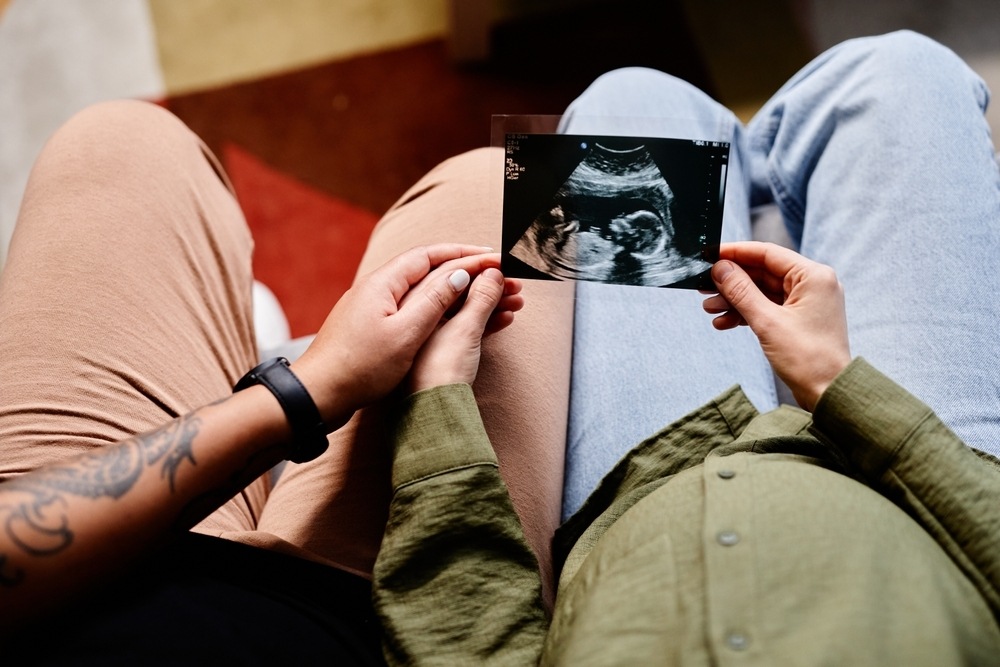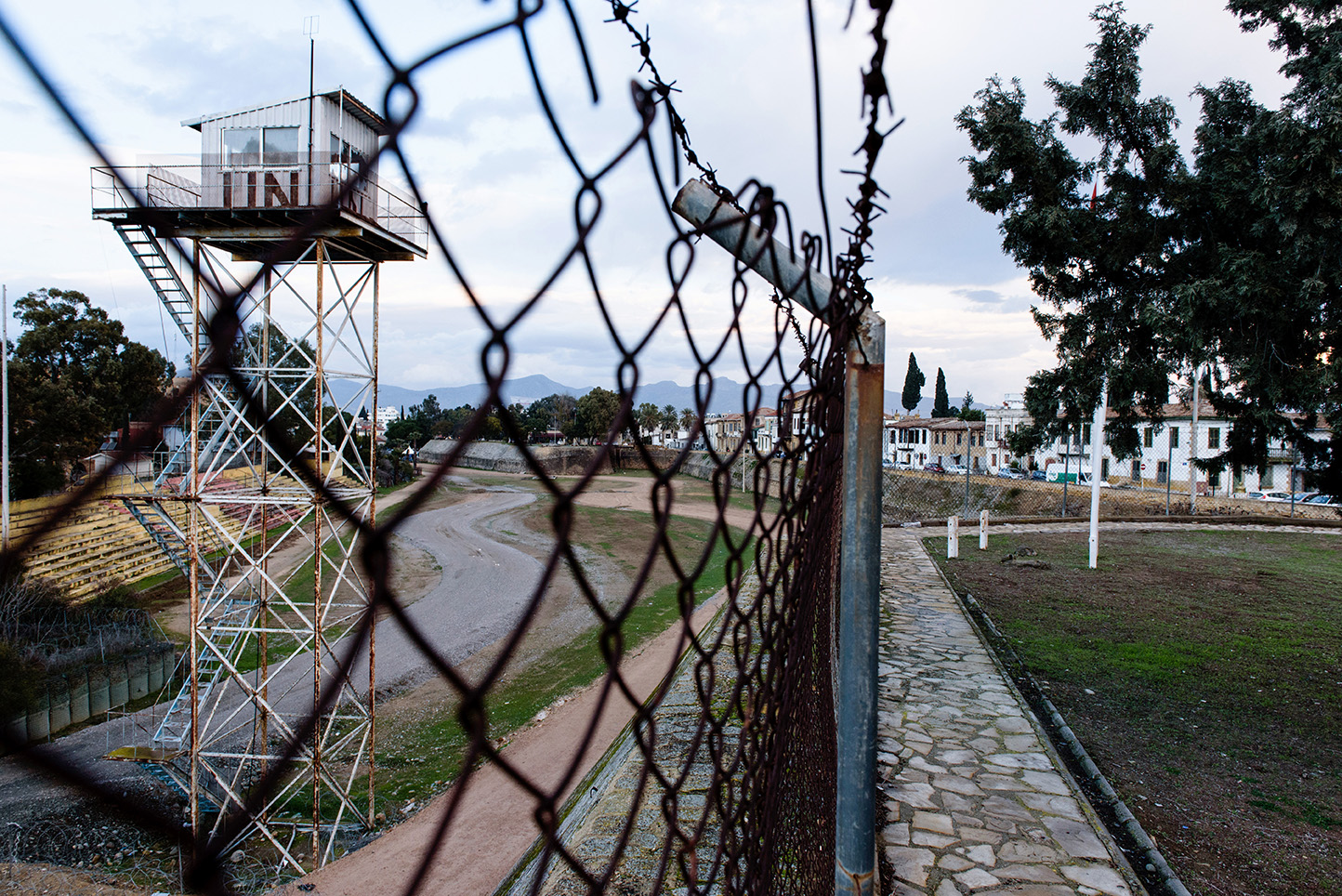Greece: IVF for all, except for LGBT+ people
Greece’s assisted-reproduction industry has been actively promoting its services domestically and internationally, and offers hope to thousands of infertile people – as long as they are not lesbian couples, gay men or intersex people.

Greece-IVF-for-all-except-for-LGBT-people
(Originally published by MIIR on 22 March 2023, distributed via the European Data Journalism Network )
“The right to motherhood was a luxury, a privilege, one that I was often made to feel as if I was stealing. Because the big message is that you shouldn’t even exist, let alone become a mother.” Demetra speaks in a low voice, trying not to be noticed by the customers of the shop where the interview is taking place. Demetra, an intersex person, asked to speak to MIIR under a pseudonym. Her physical difference can be a cause for harassment.
The initial findings of a recent survey by the NGO Intersex Greece on hate speech against intersex people (i.e. individuals whose anatomical gender is ambiguous) confirm that little is known about this unusual condition. The subject is not openly discussed, and when it is, is often presented as a problem rather than just a peculiarity of human biology. The prevalence of the unscientific term “hermaphrodite”, with its negative connotations, is indicative of the way intersex people have been presented in Greece.
“Doctors told me not to talk to other doctors [about the difference], because they all wanted to use me for their own scientific publications,” says Demetra. From the testimonies of intersex people, hospitals are the places where prejudices about intersex anatomy most often manifest themselves. “Any doctor I approached would put me in for tests. Tests and more tests, as if they had found some treasure. All without dealing with me personally, without asking me how I felt, without explaining what was wrong with me, what I could do, what the prospects were.”
Demetra found out she had no ovaries after an appendectomy when she was 12. Her intersex variation, very rare, is a completely female body but with male chromosomes (XY). “Many transsexual variations, but not all, result in infertility,” according to Intersex Greece. But some intersex people can procreate, and the use of reproductive technologies is straightforward enough. However, their access to these solutions is not without financial or psychological obstacles.
Demetra recounts: “A doctor told me: ‘Don’t say anything, ever, to your future husband. When he realises you can’t have children, if he has loved you then he’ll keep you’.” Doctor’s orders are often to conceal one’s biological status. “And always the question of a child was, for me, a fantasy. To a person who has been told from the age of 12 that you’re never going to be a parent you understand that the idea takes on another dimension.”
But at 25, Demetra was told for the first time that she could undergo in vitro fertilization (IVF) with donor eggs, with a success rate of 10-13%. “From the 0% up till then, it seemed like a huge opportunity,” she says.
Mother of triplets, father of one
IVF through egg donation has been practised in Greece since 1987. However, the service has only been systematised since the 2010s, since it has depended on both the availability of genetic material and the development of cryopreservation techniques (vitrification).
Since around 2015, Greece can claim to be one of the most popular destinations for services in assisted reproduction technology (ART) in Europe. According to companies promoting fertility-tourism packages, the country is currently second only to Spain, which holds the lead in the sector.
The graph below shows the spread of various assisted reproduction methods. According to data from Greece’s National Assisted Reproduction Authority, the proportion of births resulting from the use of any assisted reproduction method was 6.4% of the total in 2019. Specifically, according to the available data, the method that yielded the highest number of births was IVF using donor eggs, followed by IVF using fresh eggs from the expectant mother. In 2019, 219 inseminations using donor sperm were also performed. This category is the most likely to include lesbian women.
Despite the permissive legal framework and state-of-the-art technology, Demetra discovered a field riddled with taboos. With donor eggs fertilised with her partner’s genetic material, she conceived on the first try. “The doctor who did my IVF told me, ‘You’ll never say anything to the child or you’ll destroy it’,” she says, recalling the secrecy with which she was advised to handle the whole issue.
More than a decade after Demetra’s successful IVF, Vasilis (not his real name) has become the father of a boy, again through assisted reproduction. Vasilis is gay and under the current legislation there is no way for him to officially become a parent. “I grew up in a country and in a generation where synonyms for the word ‘gay’ were ‘single’ and ‘outcast’.” Vasilis agreed with his friend Helen, also gay, to present themselves as a couple, and to make use of reproductive technologies from which he, in particular, is usually excluded.
Not all gay people are equal
Gay women who want to procreate are referred to ART departments with the status of “single” even if they are in a relationship with another woman. Greek law allows unpartnered women to have IVF (using donor sperm), but prohibits it for unpartnered men, regardless of their sexual orientation. The practical result is to exclude homosexual couples of any gender.
In a study , EDJNet’s member Civio compiled data on gay women’s access to assisted reproduction across Europe. The majority of 43 European countries prohibit access to openly lesbian women (and therefore to lesbian couples), while a third of countries do the same for unpartnered women. According to the survey, the worst off are intersex and transgender individuals. In several European countries, these people are still subject to compulsory sterilisation when they undergo a sex-change procedure.
“In Greece, assisted reproduction for homosexuals will be linked to the recognition of gay marriage, whenever that happens,” legal experts told MIIR. “The cases that we know about of homosexuals who became parents were either people living abroad or a few exceptions of Greeks who might have had the money to move mountains and get around the law,” says Vasilis.
As not all gay men have a close friend ready to share parenthood, IVF clinics sometimes offer under-the-table ways to circumvent the law. “Doctors smell desperation, so clinics spread the word – ‘gay people, come have kids’ – and exploit those who are desperate.” During his period of research into the potential ways of having a child, Vasilis was put in touch with a large ART unit with the promise of success through a surrogate mother. With the help of a friend of his who would pretend to be his partner, “we found a doctor who was willing to bear false witness – a legal document was required – that my friend had done many IVFs, had endured psychological suffering, and that we could only procreate through a surrogate,” he says.
Despite the pressure from the clinic to quickly close a deal with a Moldovan surrogate – or rather precisely because of it – Vasilis concluded it was a scam. There was no shortage of experiences among his gay friends whose attempts to become parents in this way had not come to fruition. The clinic’s justifications, of “incompatibility of genetic material” or “weak sperm”, did not convince the would-be parents.
Missing letters
It is not just the law that sets limits on access to assisted reproduction. Even when it is guaranteed, the cost can be a deterrent.
For procreation through a surrogate mother, the large and well-known clinic that Vasilis approached asked him for €25,000 to cover the fee of the woman who would carry the child, €5,000 for the IVF, “5 or 8 thousand for the doctor’s commission – that’s exactly what the doctor said” and €3,000 for “egg selection”. As the use of a surrogate requires an official document, the price goes up. In the end, the IVF procedure cost €8,000, including the tests and 8 failed inseminations. He and his female friend are currently raising their baby together.
A ticket to a seat in the waiting room of parenthood cost Demetra €3,000. In her case, the drugs for ovarian stimulation are acquired by the donor and the cost was borne by the recipient. The Greek public health service does not cover the cost of the drugs when IVF is done with a donor. However, according to MIIR’s information, many couples using borrowed eggs manage by some irregularity to secure the expensive drugs for free, at least for the first attempt. “The loophole to get them illegally requires you to have a uterus and ovaries and a rudimentary chance of producing eggs,” says a former employee of a large ART unit in Athens, who wishes to remain anonymous.
Demetra is left wondering: “It’s not that I took too long to decide to have children, it was for biological reasons. Shouldn’t I be entitled to a discount?” After an easy pregnancy where everything went well, Demetra became, as she says, one of the few people with this physical condition who managed to become a parent. “If I am not the first in Greece, then I am certainly one of the first. Both here and worldwide.”
Of the letters in the acronym LGBT+, none of the people concerned has unfettered access to assisted reproduction. Gay men are completely shut out, and intersex people are likely to experience the same obstacles that accompany them through the rest of their social lives.
“If you ask me what the ideal is, I can’t tell you. Because I don’t have that much imagination. I’m very realistic. I don’t even daydream when I know it won’t work out. In an ideal world, I might want a child with my partner,” says Vasilis. As his friends remind him, he can overcome “written and unwritten laws” if he formally conceals his sexual orientation. “And if the kid asks me ‘Why, daddy?’, then I’ll tell him that we wanted him so much, we turned the world upside down.”
Tag: LGBT









